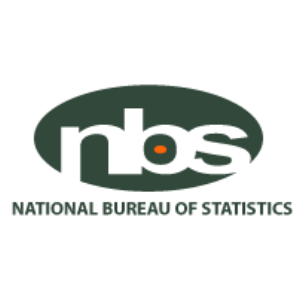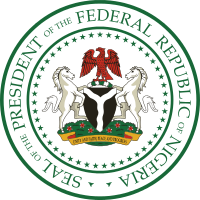While you were away!
NBS REPORTS A FIRST TIME DROP OF NIGERIA INFLATION RATE IN 15 YEARS
 The National Bureau of Statistics has released its 2017 February Consumer Price Index revealing that Nigeria’s inflation rate increased by 17.78 percent for the period under review. This is the first time the inflation rate has dropped in 15 Months.
The National Bureau of Statistics has released its 2017 February Consumer Price Index revealing that Nigeria’s inflation rate increased by 17.78 percent for the period under review. This is the first time the inflation rate has dropped in 15 Months.
Key Highlights
- On a Headline basis, the Consumer Price Index (CPI) which measures inflation increased by 17.78 percent (year-on-year) albeit at a slower pace in February 2017, 0.94 percent points lower from the rate recorded in January (18.72) percent.
- On a month-on-month basis, the Headline index increased by 1.49 percent in February 2017, 0.48 percent points higher from the rate of 1.01 percent recorded in January.
- The drop in inflation rate was mainly due to a significant drop in the Core Inflation Sub-index. Core inflation, which includes every item except food, rose the slowest at 16 percent.
Food Index
- The Composite Food Index rose by 18.53 percent in February 2017. The rise in the index was driven by increases in the prices of bread, cereals, meat, fish, potatoes, yams and other tubers, vegetables, wine, milk, cheese and eggs, Sugar, jam, honey, chocolate and confectionery and fruit.
- On a month-on-month basis, the Food sub-index increased by 1.99 percent in February, up by 0.7 percent points from 1.29 percent recorded in January.
- The average annual rate of change of the Food sub-index for the twelvemonth period ending in February 2017 over the previous twelve-month average was 16.13 percent, 0.59 percent points from the average annual rate of change recorded in January (15.54 percent).
Core Inflation
- The ‘’All Items Less Farm Produce’’ or Core sub-index, which excludes the prices of volatile agricultural produce eased by 16.0 percent during the month of February 2017, 1.90 percent points from 17.90 percent recorded in January as all key divisions which contributes to the index increased at a slower rate.
- On a month-on-month basis, the Core sub-index increased by 1.10 percent in February, 0.42 percent points higher from 0.68 percent recorded in January. The average 12-month annual rate of rise of the index was recorded at 16.44 percent for the twelve-month period ending in February 2017, 0.40 percent points higher from the twelve month rate of change recorded in January.
FGN ISSUES MORE BONDS THAN ENVISAGED DUE TO DROP IN INFLATION
 The Federal Government of Nigeria Debt Management Office (DMO) announced on Thursday 16th March 2017, that it had issued more bonds than originally planned at an auction after slowing inflation rate helped it offer debt at lower yields.
The Federal Government of Nigeria Debt Management Office (DMO) announced on Thursday 16th March 2017, that it had issued more bonds than originally planned at an auction after slowing inflation rate helped it offer debt at lower yields.
The DMO said it raised N160bn at an auction on Wednesday 15th March, N 30bn more than it had offered to sell.
You would recall that the FGN has been selling bonds below inflation in recent months to curb borrowing costs, as it intends to fund half of this year’s forecast budget deficit of N 2.36tn through the domestic debt market.
An 80 billion naira bond due 2036 was sold at 16.28% against 16.77 % at its last sale, while a 2021 debt was issued at 16.24 % against 16.55 % previously to fetch N 30bn.
Another N 50bn due in 2027 was issued at par at 16.28 %.
Total demand at the auction stood at N216.38bn compared to N 337.03bn at last month’s sale.
Nigeria issues domestic bonds every month to raise money to fund its deficit, which also helps the banking system manage its liquidity
FGN RELEASES ECONOMIC RECOVERY STRATEGY
The Federal Government of Nigeria (FGN) The has released the Economic Recovery and Growth Plan (ERGP) which unveils a road map for Nigeria’s economic recovery, growth and sustainable development. This was according to a statement issued on Tuesday March 7, 2017 by the Media Adviser to the Minister of Budget and National Planning, Akpandem James.
The broad objectives of the ERGP are as detailed below:
- Restoring Growth
To restore growth, the plan focuses on achieving macroeconomic stability and economic diversification. Macroeconomic stability will be achieved by undertaking fiscal stimulus, ensuring monetary stability and improving the external balance of trade.
Similarly, to achieve economic diversification, policy focus will be on the key sectors driving and enabling economic growth, with particular focus on agriculture, energy and MSME led growth in industry, manufacturing and key services by leveraging science and technology.
The revival of these sectors, increased investment in other sectors, less reliance on foreign exchange for intermediate goods and raw materials and greater export orientation will improve macroeconomic conditions, restore growth in the short term and help to create jobs and bring about structural change.
- Investing in our people
Economic growth is beneficial for society when it creates opportunities and provides support to the vulnerable. The ERGP will invest in the Nigerian people by increasing social inclusion, creating jobs and improving the human capital base of the economy.
- Social inclusion: The federal government will continue to provide support for the poorest and most vulnerable members of society by investing in social programmes and providing social amenities. Targeted programmes will reduce regional inequalities, especially in the North-east and Niger Delta.
- Job creation and youth empowerment: Interventions to create jobs are a core part of the ERGP, which aims to reduce unemployment and under-employment, especially among youth. The ERGP accordingly prioritizes job creation through the adoption of a jobs and skills programme for Nigeria including deepening existing N-Power programmes, and launching other public works programmes.
The partnership for job creation will also focus on the policies required to support growth and diversification of the economy by placing emphasis on Made-in-Nigeria, public procurement which takes account of local content and labour intensive production processes. All initiatives under job creation would prioritize youth as beneficiaries. Accordingly, all capacity building and skills acquisition interventions will be targeted at youth-dominated sectors such as ICT, creative industries, and services. Furthermore, concerted efforts would be made to encourage youth to venture into other labour intensive sectors such as agriculture and construction.
- Improved human capital: The federal government will invest in health and education to fill the skills gap in the economy, and meet the international targets set under the UN’s Sustainable Development Goals (SDGs). The ERGP will improve the accessibility, affordability and quality of healthcare and will roll out the National Health Insurance Scheme across the entire country. It will also guarantee access to basic education for all, improve the quality of secondary and tertiary education, and encourage students to enrol in science and technology courses.
DOLLAR EXCHANGE RATE REPORT 6TH MARCH TO 17RD MARCH, 2017
 This report is a compilation of the dollar exchange rate at the official and parallel market from the 6th of March to the 17th of March, 2017. The quoted parallel market prices are to serve as a guide to readers, as they represent the average price obtained daily from different black market dealers in the Country.
This report is a compilation of the dollar exchange rate at the official and parallel market from the 6th of March to the 17th of March, 2017. The quoted parallel market prices are to serve as a guide to readers, as they represent the average price obtained daily from different black market dealers in the Country.
| S/N | DATE | CURRENCY | OFFICIAL RATE |
PARALLEL MARKET RATE
|
|
| BUY | SELL | ||||
| 1 | 17/03/2017 | DOLLAR | 305 | 447 | 455 |
| 2 | 16/03/2017 | DOLLAR | 305 | 452 | 459 |
| 3 | 15/03/2017 | DOLLAR | 305 | 453 | 458 |
| 4 | 14/03/2017 | DOLLAR | 305 | 455 | 459 |
| 5 | 13/03/2017 | DOLLAR | 305 | 456 | 461 |
| 6 | 11/03/2017 | DOLLAR | 305 | 458 | 463 |
| 7 | 10/03/2017 | DOLLAR | 305 | 460 | 465 |
| 8 | 09/03/2017 | DOLLAR | 305 | 457 | 467 |
| 9 | 08/03/2017 | DOLLAR | 305 | 460 | 465 |
| 10 | 07/03/2017 | DOLLAR | 305 | 455 | 460 |
| 11 | 06/03/2017 | DOLLAR | 305 | 465 | 470 |



